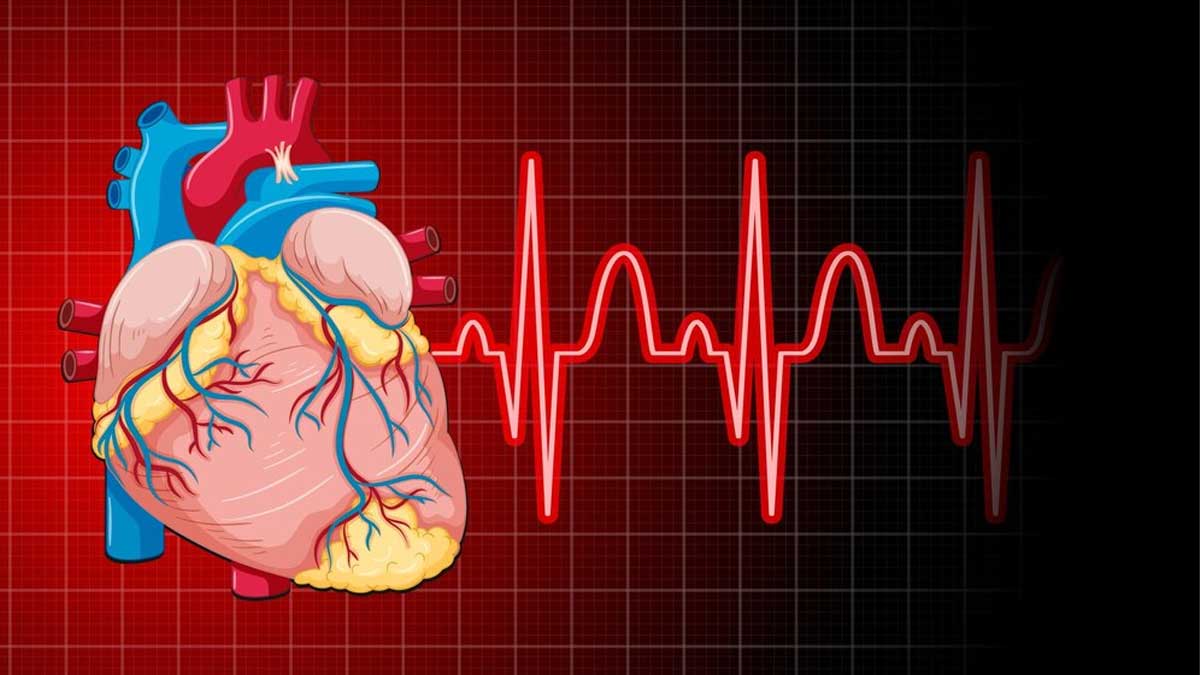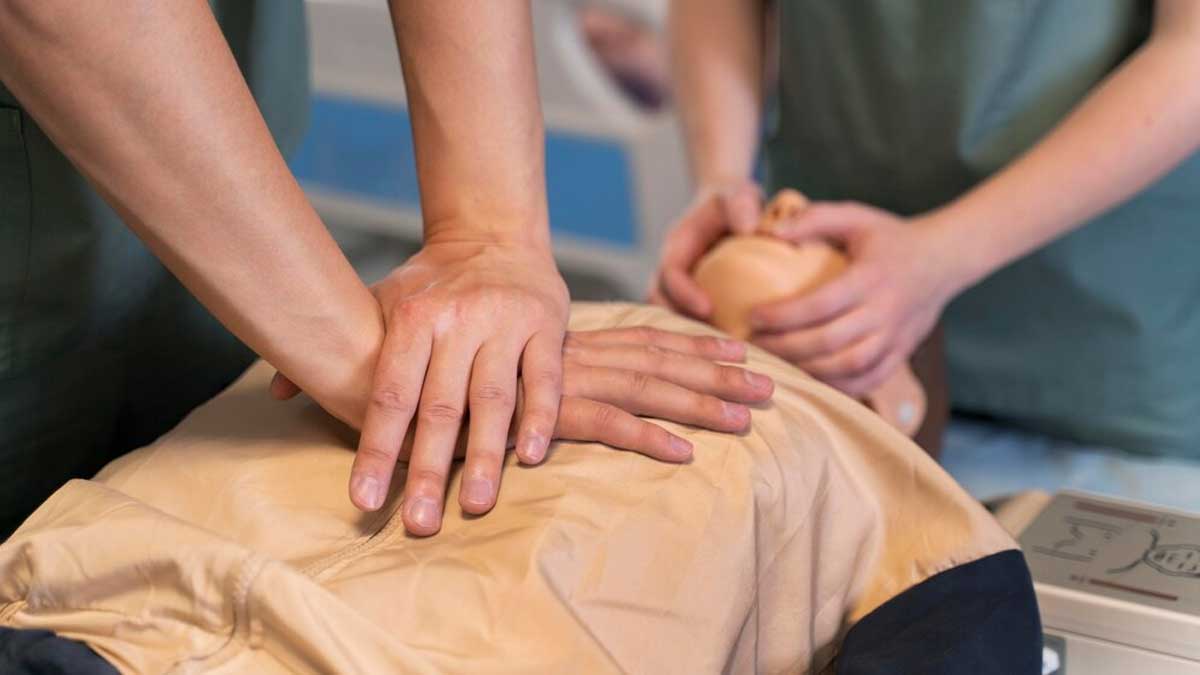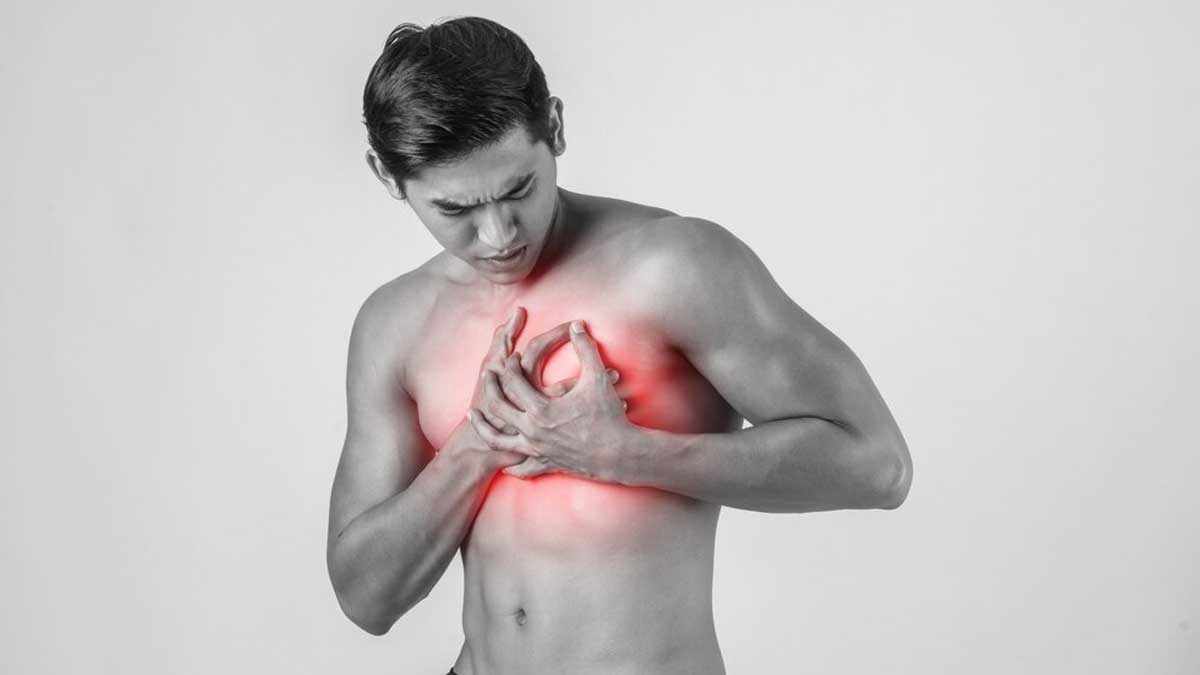
As people across India celebrate Navratri in full swing, some families mourn the loss of their loved ones. Reportedly, at least 10 people including a 17-year old have succumbed to cardiac events in 24 hours while playing Garba in Gujarat. A 24-year-old man from Ahmedabad is among the 10 people, who collapsed and died after passing out.
Table of Content:-
In a similar incident, a 17-year-old boy breathed his last after suffering a sudden cardiac arrest while playing Garba in Kapadvanj Kheda district. Sharing details of the incident, Dr Aayush Patel, MD Medicine told ANI, "A 17-year-old boy, Veer Shah, was playing Garba at the Garba ground in Kapadvanj when he complained of dizziness and became unresponsive. A team of volunteers at the scene immediately attended to him and performed a cardio-respiratory resuscitation. We monitored his vitals but found no pulse. There was no response and signs of respiration. He was given three cycles of Cardiopulmonary resuscitation (CPR). We shifted him to a hospital by ambulance. However, he was declared dead at the hospital."
The tragedy that has struck the state raises many questions, one of them being why young people are becoming more prone to sudden cardiac arrest? We spoke to leading cardiologists to understand the same.
Also Read: Are Cardiac Arrest Symptoms Different For Men And Women?
What Is A Cardiac Arrest?
.jpg)
Cardiac arrest is a sudden and life-threatening medical condition in which the heart abruptly stops beating. This results in a lack of blood flow to the body's vital organs, and if not treated promptly with measures like cardiopulmonary resuscitation (CPR) and defibrillation, it can lead to death.
Often, cardiac arrest is used interchangeably with a heart attack, which according to the American Heart Association (AHA) is not accurate. Cardiac arrest is a sudden and life-threatening medical condition in which the heart abruptly stops beating. This results in a lack of blood flow to the body's vital organs, and if not treated promptly with measures like cardiopulmonary resuscitation (CPR) and defibrillation, it can lead to death.
While a heart attack is when blood flow to the heart is blocked, sudden cardiac arrest is when the heart malfunctions and suddenly stops beating. To be precise, a heart attack is a “circulation” problem and sudden cardiac arrest is an “electrical” problem, as per the AHA.
Why Are Young People Becoming Prone To Sudden Cardiac Arrest?
Usually, cardiac arrest is more common in older adults and those with a personal or family history of heart diseases, such as heart rhythm problems, heart failure and heart problems present at birth. However, the rise of cardiac arrest events in young people has become a global health concern.
According to Dr Chandrashekhar, Associate Director-Cardiology, Max Super Speciality Hospital, Shalimar Bagh, this can be due to a combination of reasons and risk factors, like undetected heart diseases, genetics, unhealthy habits and lifestyle choices, stress, and substance use.
“Sometimes, intense sports or being overweight can also be factors,” he adds.
Moreover, consumption of alcohol and smoking, electrolyte imbalances, and genetic or family history, can also be major contributors, says Dr Abhishek Singh, Consultant Cardiology, Manipal hospital, Ghaziabad.
Although a healthy lifestyle, including regular exercise and a balanced diet, is important for heart health, Dr Singh believes these may not be enough to prevent sudden cardiac arrest, especially in patients with underlying heart conditions.
“Such patients require additional precautions, such as medication or implantable cardioverter-defibrillators (ICDs), to reduce their risk,” he adds.
Understanding The Role Of Genetics

Interestingly, genetics can play an important role in sudden cardiac arrest. According to Dr Singh, it can increase the risk of developing heart conditions if there is a family history of sudden cardiac arrest or any other heart problems.
Elaborating on the topic, Dr Chandrashekhar says, some specific genetic conditions associated with SCA are long QT syndrome, Brugada Syndrome, Hypertrophic Cardiomyopathy, Arrhythmogenic Right Ventricular Dysplasia, Catecholaminergic Polymorphic Ventricular Tachycardia and sudden unexplained death syndrome.”
It may be concerning to know that some of them may cause life threatening arrhythmia during exercise and stress.
However, it’s also important to note that not everyone with genetic predisposition will necessarily experience sudden cardiac arrest.
Also Read: 7 Warning Signs Of Sudden Cardiac Arrest
How Much Does Stress Contribute To Cardiac Arrest Risk?
Although stress is not a direct cause of sudden cardiac arrest, it can indirectly increase the risk factor.
“Chronic stress can lead to unhealthy lifestyle choices, such as smoking, poor diet, and lack of exercise, which can increase the risk of heart problems, Dr Singh says, adding, “It can trigger arrhythmias in individuals with underlying heart conditions.”
A study published in the Journal CJC Open found that chronic stress might predispose otherwise healthy individuals to lethal arrhythmias, which can further lead to sudden cardiac arrest.
These irregular heart rhythms disrupt the heart's pumping function, leading to a rapid loss of consciousness and, if not promptly treated with defibrillation, can be fatal within minutes.
Has COVID-19 Contributed To The Rising Cases Of Heart Problems In Young People?

The coronavirus pandemic took a massive toll on people around the world. However, those with pre-existing conditions like heart disease and diabetes had it worse.
But that’s not all. Dr Singh notes, “We have witnessed the impact of the COVID-19 infection and how it can contribute to the rise in risk of heart problems, including myocarditis (inflammation of the heart muscle) and pericarditis (inflammation of the sac surrounding the heart).”
According to Dr Chandrashekhar, these conditions increased incidence of blood clots and exacerbation of pre-existing heart conditions in individuals who had COVID.
Preventive Measures
Some of the preventive steps to take against sudden cardiac arrest include:
- Appropriate evaluation by a specialist if a person has a family history of heart diseases
- Regular exercise
- Healthy Diet,
- Quitting smoking and avoiding excessive alcohol consumption
- Regular monitoring and management of blood pressure, control of cholesterol levels
- Maintaining a healthy weight,
- Proper management of diabetes
- Managing stress
- Avoiding illicit drugs as certain recreational drugs
It is also important to learn Cardiopulmonary Resuscitation(CPR), which can be a lifesaving skill in the event of a sudden cardiac arrest.
Taking these measures can significantly reduce the risk of sudden cardiac arrest and also save a life.
Also watch this video
Read Next
Heart Failure Symptoms Can Get Worse Over Time: How The 4 Different Stages Affect Your Body
How we keep this article up to date:
We work with experts and keep a close eye on the latest in health and wellness. Whenever there is a new research or helpful information, we update our articles with accurate and useful advice.
Current Version